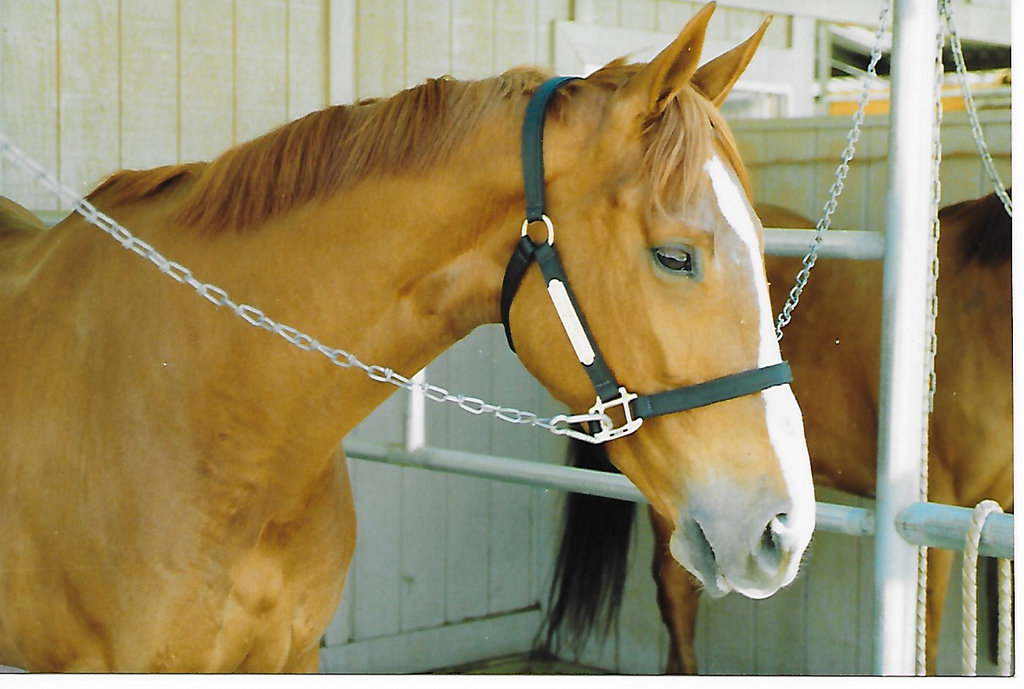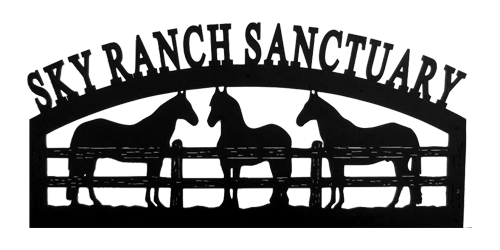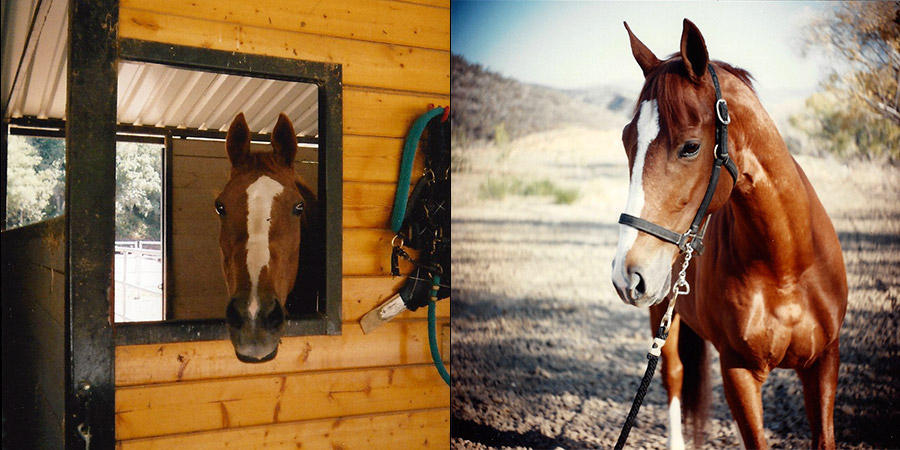Poco was a beautiful “typy”[someone told me] Thoroughbred mare, being sold at the training barn where I formerly took lessons, and formerly boarded Ditto. Rumor had it, she didn’t care for men, especially men who wore gloves. She was tried at the track as a young horse and had a bump on her nose indicating that perhaps she hadn’t gone along with the program and was treated severely for that. Until she got more pasture time after she came to live with me, she swayed in her stall, most likely from being cooped up during her days at the track.
It seemed I decided on purchasing Poco the minute I heard she was for sale. Deciding to take on an animal, dog, cat or horse, usually happens to me that way. It’s mentioned, and then it’s a done deal. I think the universe gives us many suggestions, which we can take or not, but for me when that suggestion involves an animal, it seems more like a command!
Poco was an “alpha” mare, and when she got used to being around the less secure, more worried, Ditto, she decided to become his guardian angel. At one barn in Michigan, the owner would put out a large round bale of hay for the horses, and the pecking order became readily apparent by observing who ate when. Poco was first, and then because Ditto was “with her,” he got to be second. If the other horses thought she wasn’t looking, they would try and assert themselves, putting Ditto in his probably bottom of the heap spot, and Poco would come to his rescue threatening with a bite or a kick.
She seemed to love being sprayed with fly spray as though it were her “preferred fragrance.” She put up with Snitch (an Arabian I purchased a few years later) and only occasionally got testy with his incessant pestering. Poco was a very sensitive horse and when riding her, the signals had to be very clear. I once observed a rider trying to get her to go from a canter to a trot. It didn’t happen. The rider became exasperated, and Poco wore an expression indicating she was just doing what she was asked to do, so get over it!
Poco lived out her retirement at our California Ranch. There were subtle signs that something wasn’t right. Her legs would be scuffed up in the morning, and the vet suggested maybe she was having trouble getting up. Then one day, she couldn’t get up. With the help of the workers at Scott’s shop on the property, we tried helping her up and just turning her, using lead ropes. Nothing worked. Finally hours later in desperation, knowing the risk to her life to be down that long, we hired a crane to pull her up. Her legs were useless to her, and she couldn’t stand. After many hours of her suffering to try and stand, and all of us trying to help her get up so at least the vet could examine her, the decision was made to put her down. It was unbelievably sad because she seemed ok in all other respects.
Looking back I recall the comments years earlier that she was “cold backed”; a chiropractor said her spine was “extra stiff” when treating her, and others made similar observations. Maybe I should have seen those as clues. She had always seemed vital and moved well. What could have been done to prevent the paralysis?
She was 27 when she died, and I think she liked her life, moving with us first to Michigan from LA and then back to California. A neighbor stopped by to comfort me. Her horse had died a few years before, and she knew how I felt. A shared grief. Horses are large creatures and take up a lot of space in the heart. Poco was a noble horse and carried herself with the maximum dignity until she could no more. There will never be another like her.


